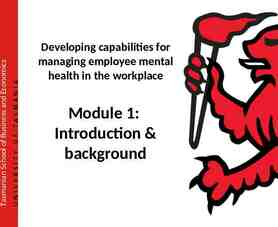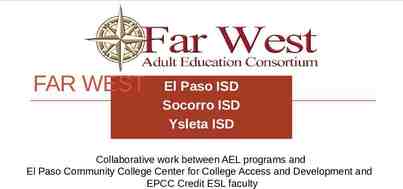Managing Independent Contractors Identify best practices for hiring
17 Slides580.00 KB

Managing Independent Contractors Identify best practices for hiring and managing independent contractors

Learning Objectives At the end of this module, you will be able to: – List the benefits and issues with hiring an independent contractor, as well as the legal ramifications. – Identify best practices to follow when hiring an independent contractor. – Identify best behaviors to follow while managing an independent contractor as part of your team. FDIC OMWI Education Module: Managing Independent Contractors 2

About FDIC Small Business Resource Effort The Federal Deposit Insurance Corporation (FDIC) recognizes the important contributions made by small, veteran, and minority and women-owned businesses to our economy. For that reason, we strive to provide small businesses with opportunities to contract with the FDIC. In furtherance of this goal, the FDIC has initiated the FDIC Small Business Resource Effort to assist the small vendors that provide products, services, and solutions to the FDIC. The objective of the Small Business Resource Effort is to provide information and the tools small vendors need to become better positioned to compete for contracts and subcontracts at the FDIC. To achieve this objective, the Small Business Resource Effort references outside resources critical for qualified vendors, leverages technology to provide education according to perceived needs, and offers connectivity through resourcing, accessibility, counseling, coaching, and guidance where applicable. This product was developed by the FDIC Office of Minority and Women Inclusion (OMWI). OMWI has responsibility for oversight of the Small Business Resource Effort. FDIC OMWI Education Module: Managing Independent Contractors 3

Executive Summary Small businesses typically have few people on staff and may lack in-house expertise to handle all of their growing business demands. Hiring an independent contractor has obvious benefits. Being wellinformed about working with independent contractors will help prevent potential issues. When hiring an independent contractor, you should consider the legalities involved and follow best practices to ensure the partnership is successful. FDIC OMWI Education Module: Managing Independent Contractors 4

The Pros and Cons of Hiring Independent Contractors Benefits of hiring an independent contractor: – Expertise and knowledge: Access to new information that you need to grow your business. – Flexibility: No long-term commitment. – Possible cost savings: No employee related expenses, such as taxes, benefits, workers’ compensation, etc. – Temporary Test for “fit”: Allows you to experience the quality of the work and the attitude of a person before you hire them as a full-time employee. Possible issues when hiring an independent contractor: – Control is limited: You may be one of many businesses for whom a contractor is working, and your needs may not always get top priority. – Lack of continuity: If a contractor walks away from a contracted engagement suddenly, you could be left scrambling to keep the work going. – Higher costs: If this contractor fills a role that you need almost full-time, you may save money by hiring an employee to do the work; contractor rates are adjusted up to compensate for the lack of benefits and for the downtime between engagements. FDIC OMWI Education Module: Managing Independent Contractors 5

Independent Contractor Examples Small businesses typically hire independent contractors for their expertise, such as: – – – – – – – Graphic design Marketing Accounting/finance Copywriting Research and development IT support Administrative tasks FDIC OMWI Education Module: Managing Independent Contractors 6

Legal Considerations (Slide 1 of 2) The most critical legal issue is the proper identification of employees versus independent contractors: – Know the key differences between an employee and an independent contractor. For independent contractors (ICs), the following is true: Behavioral. ICs control how the work is done. Financial. ICs provide and pay for their own tools, supplies, and business expenses. Type of Relationship. ICs have a written contract, do not receive employee-type benefits, and their work is not a key aspect of the business. – Be especially careful if you hire independent contractors to do the same work that you have hired employees to do. FDIC OMWI Education Module: Managing Independent Contractors 7

Legal Considerations (Slide 2 of 2) Various governing bodies audit businesses to make sure they do not classify employees as independent contractors: – IRS (federal payroll taxes). – State Governments (state payroll taxes, unemployment insurance premiums, and workers’ compensation premiums). – U.S. Department of Labor (employee rights). The serious consequences of misclassification include back taxes, interest, penalties, and fines. FDIC OMWI Education Module: Managing Independent Contractors 8

Five Best Practices: Before the Hire (Slide 1 of 3) Follow these five best practices before you hire an independent contractor: 1. Write a clear job description. Know exactly what you want and be specific with the person for what you are hiring them to do. 2. Know what you are willing to pay. 3. Do a background check (with their consent) or use a reputable staffing firm to do this for you. 4. Prepare a written contract. 5. Collect documentation from the independent contractor that reflects the individual’s intent to work as a contractor, including a Form W-9. FDIC OMWI Education Module: Managing Independent Contractors 9

Five Best Practices: Before the Hire (Slide 2 of 3) 1. Write a clear job description: – Define what you want done and by when. Be specific. The more you know about a project in advance, the smoother the whole process will run. – Describe the minimum qualifications for the job in the areas of experience, education, professional certifications, etc. 2. Know what you are willing to pay: Do your homework on rates and know your comfort range for various types of contract work. If the project due date is extended, you will have to pay more. 3. Do a background check (with their consent) on the potential job candidate or independent contractor, or use a reputable staffing firm to do this for you. This is especially important if the agency or customer you have the contract with is involved in sensitive or classified information. You don’t want the embarrassment of providing an independent contractor that the client/agency turns down due to negative information in their “file.” FDIC OMWI Education Module: Managing Independent Contractors 10

Five Best Practices: Before the Hire (Slide 3 of 3) 4. Prepare a written contract: – Include a description of the work to be done (and the quality of results you expect), milestone deadlines, where the work is to be performed, and the schedule/method of payment. – Add other clauses (depending on the type of work): Conflicts of interest, confidentiality, and copyright ownerships. – Make the contract valid for only a few months. For long-term projects, revisit the contract frequently and adjust as needed. 5. Collect documentation from the independent contractor that reflects the individual’s intent to work as a contractor, such as business cards, marketing brochures, company EIN (if incorporated), Form W-9, etc. FDIC OMWI Education Module: Managing Independent Contractors 11

Three Best Practices: During the Engagement (Slide 1 of 3) Follow these practices during the engagement with independent contractors: 1. Communicate actively. 2. Deal with the team dynamics. 3. Know what independent contractors should expect of you. FDIC OMWI Education Module: Managing Independent Contractors 12

Three Best Practices: During the Engagement (Slide 2 of 3) 1. Communicate actively: – – – – Present clear goals and expectations. Have deadlines for specific results. Periodically check on progress. Follow-up intervals need to increase if you are not happy with the work products developed. – Don’t rely solely on email for communication; face time is important. 2. Deal with the team dynamics (if the independent contractor will be on site and working closely with your employees): – Talk to the team about why you have hired a contractor and what the benefits to the business are. – Communicate broad goals to the entire group. – Do not give contractors preferential treatment. Employees will resent it, and contractors could use it against you. FDIC OMWI Education Module: Managing Independent Contractors 13

Three Best Practices: During the Engagement (Slide 3 of 3) 3. Know what independent contractors should expect of you: – – – – Be available for questions. Offer appropriate direction and feedback. Provide a healthy climate in the workplace. Pay invoices in a timely fashion. FDIC OMWI Education Module: Managing Independent Contractors 14

Resources for Small Businesses AllBusiness.com: Includes inexpensive forms to use when hiring independent contractors (including background check permission, written contracting agreement, etc.). Elance.com and Guru.com: Allows you to post contract job openings, as well as find, hire, and manage contractors. FreelanceSwitch.com: Offers tips on the ins and outs of hiring freelance/independent contractors. Nolo.com: Offers free legal information. IRS.gov: Explains the differences between a contractor and an employee and the tax consequences. http://www.irs.gov/businesses/small/article/0,,id 99921,00.html - FDIC OMWI Education Module: Managing Independent Contractors 15

Key Takeaways from This Module Creating a written description of the work that you wish the independent contractor to do will help formalize your written contract with them. Familiarizing yourself with the laws regarding employees versus independent contractors will help you avoid legal problems. Abiding by those laws will ensure a good partnership. Following best practices before hiring an independent contractor and during the engagement will position your independent contractor and your business to succeed. FDIC OMWI Education Module: Managing Independent Contractors 16

Sources and Citations AllBusiness.com, Forming Relationships with Independent Contractors AllBusiness.com, Managing Independent Contractors Entrepreneur.com, Managing an Independent Contractor Ginny Schlosser, ProSidian Consulting, LLC , Managing Independent Contractors IRS.gov, Independent Contractor (Self-Employed) or Employee? Score.org, Know the Rules for Hiring Contract Labor Alston Robertson, ProSidian Consulting, LLC , Managing Independent Contractors FDIC OMWI Education Module: Managing Independent Contractors 17






